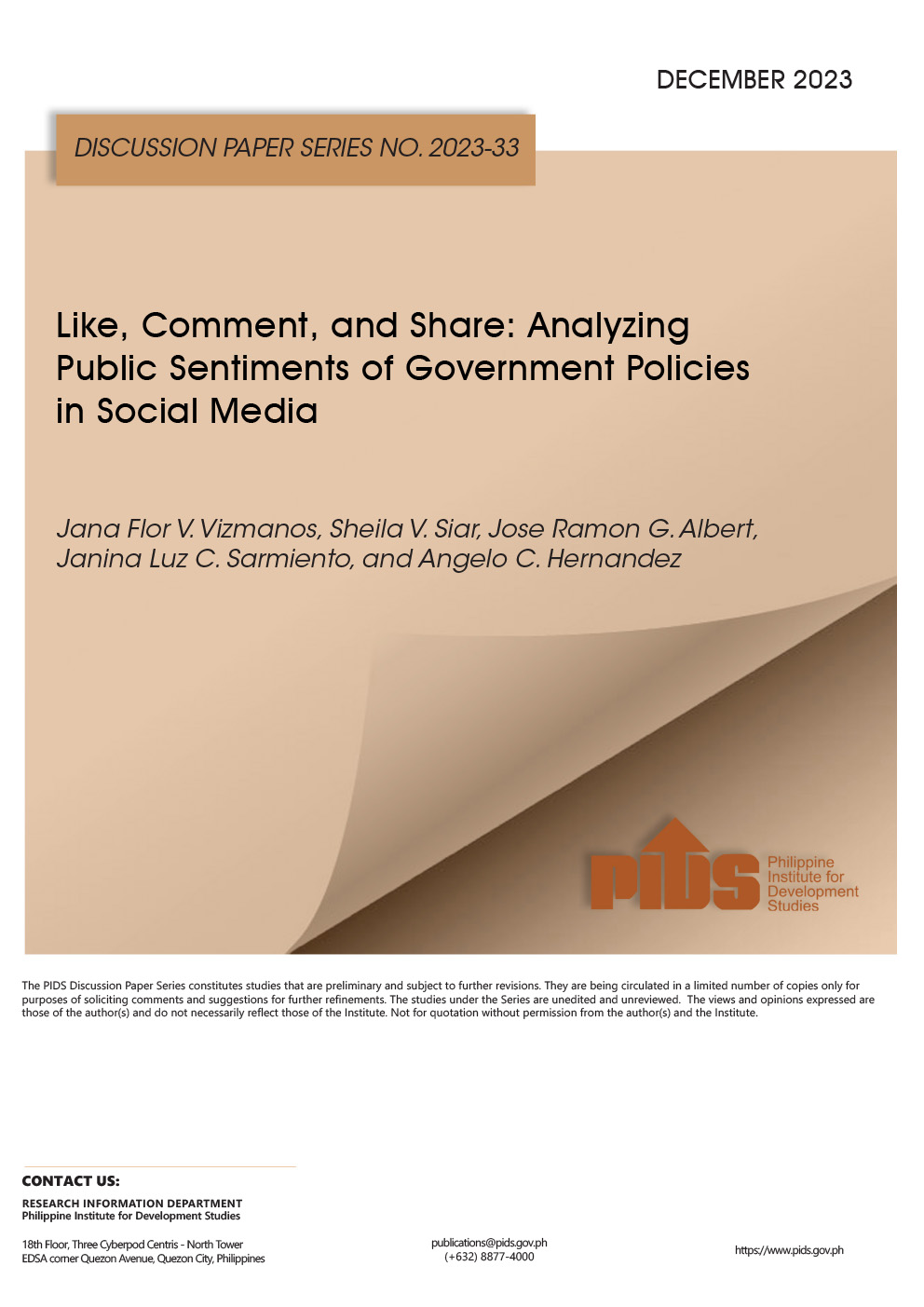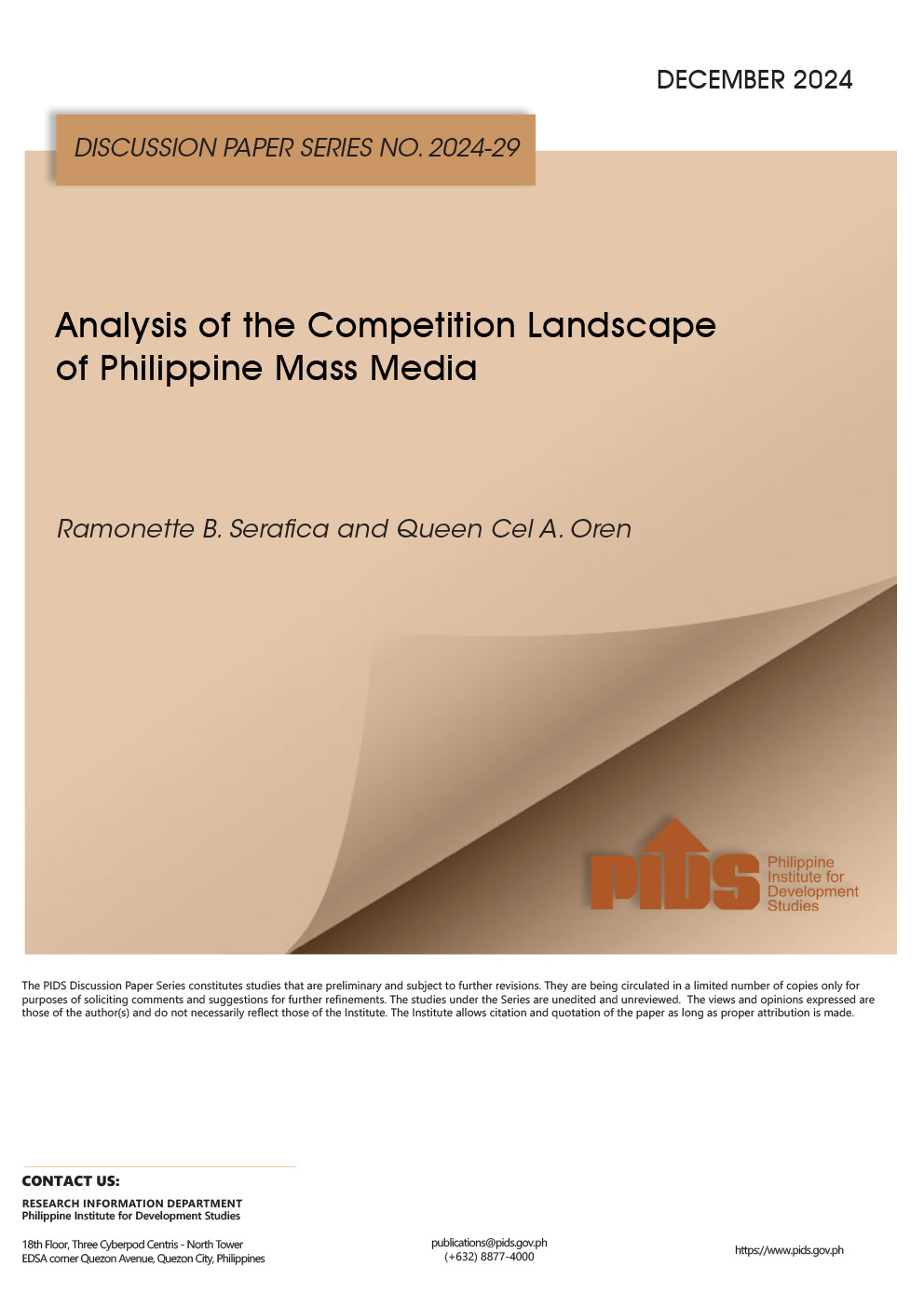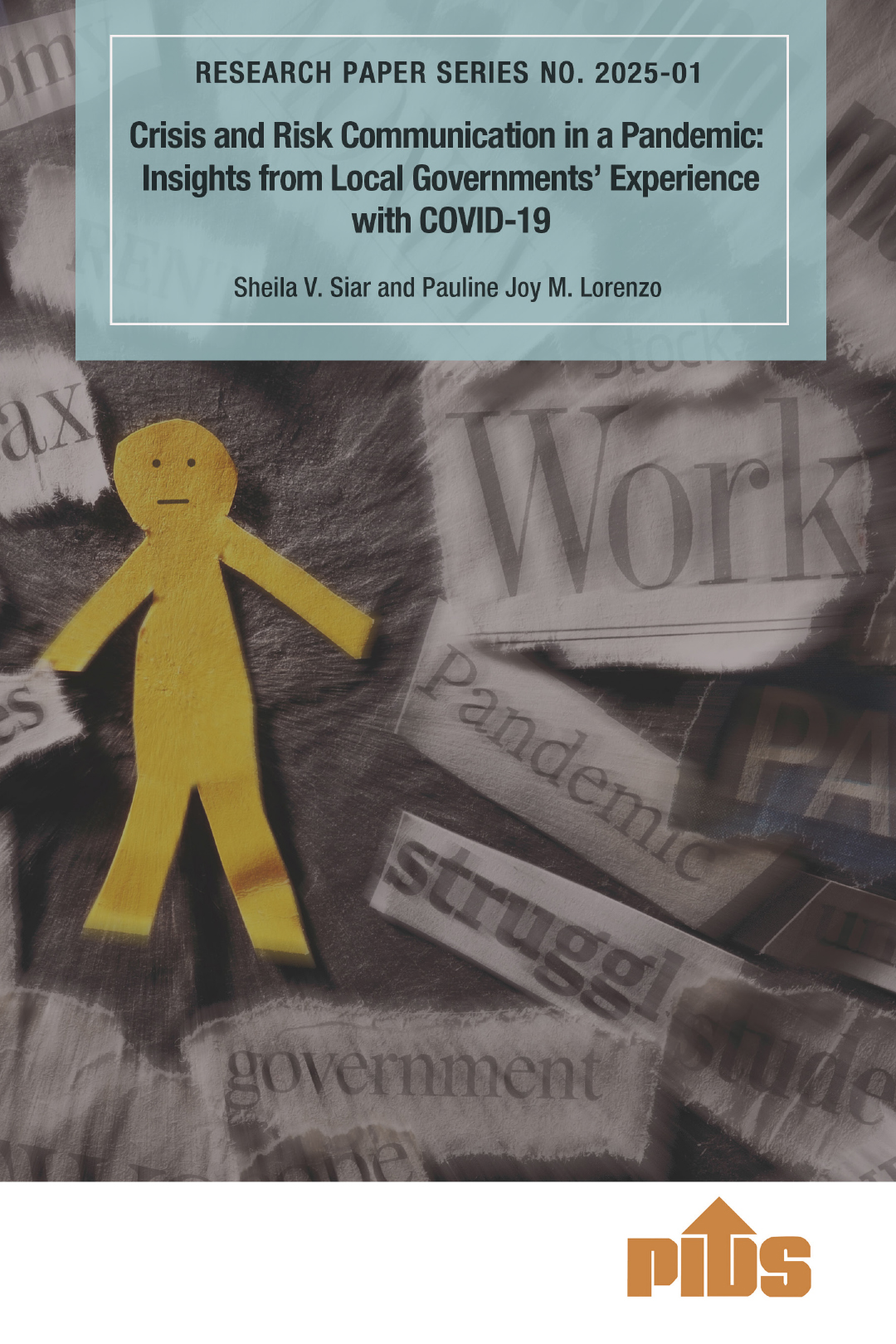Local government units (LGUs) need to have a communication plan in place and to enhance their communication capacities by upgrading equipment and allocating funds for training to improve their ability to respond to pandemics and other emergencies, state think tank Philippine Institute for Development Studies (PIDS) said.
In the policy note titled 'Crisis and risk communication during the COVID-19 pandemic: Lessons from local governments,' PIDS provided recommendations to address gaps in the implementation of crisis and risk communication during the pandemic in the cities of Pasay, Manila, Caloocan and Navotas in Metro Manila.
Among the recommendations is to institutionalize communication planning, as well as monitoring and evaluation (M and E) in LGUs as the study found the lack of such in all four cities covered.
'Whether or not the situation is a crisis, LGUs should have a strategic communication plan, which is essential in setting goals and objectives; identifying the audience, message, channels, timing, and resources; and specifying accountabilities,' the PIDS said.
They said the communication plan should come with a clear M and E system to track outcomes against targets, identify pitfalls and areas for improvement, and evaluate the success of communication interventions.
'As the government agency mandated to oversee LGUs, it is recommended that the Department of the Interior and Local Government institutionalize communication planning and M and E across local governments and ensure these are present and functioning in all the LGUs,' the PIDS said.
The study also recommended strengthening the LGUs' communication capacities through more investments on equipment, infrastructure and communication personnel.
It also found out that there were challenges in LGUs' conduct of communication activities and pandemic response. These include receiving memos on new policies from the national government late, fast-changing guidelines, difficulty in communicating COVID-19 to the public, reaching the less-educated population, proliferation of fake news, and discrepancies in reported COVID-19 cases.
'The LGUs' bigger revenues arising from the implementation of the Mandanas-Garcia ruling starting in 2022 pose an opportunity for them to beef up their communication capacities by upgrading their equipment, improving their digital connectivity, hiring additional communication personnel, acquiring essential software and applications, and allocating funds for communication training,' the PIDS said.
Given the country's limited experience in dealing with epidemics and pandemics, the think tank said it is important to have training on effective public communication during health emergencies particularly for government personnel involved in disaster risk reduction and management, health and public information.
'Effective communication is key to preparation, mitigation, control, and recovery,' the PIDS said.
The PIDS also recommend that LGUs take a proactive role in addressing disinformation and misinformation by leveraging social media.
'The government, including LGUs, should be at the forefront of the fight against fake news. Given their proximity to the public, LGUs can help greatly in correcting false information through their social media pages and interpersonal channels on the ground, such as barangay officials, local health officials, and BHWs (barangay health workers).'
For such channels to be effective in fighting fake news, the PIDS said continuous training and education would be important.
'LGUs can also help institutionalize fact-checking by sponsoring awareness and skills training in schools, offices, and communities and partnering with media organizations, academic institutions, and civil society organizations.'











